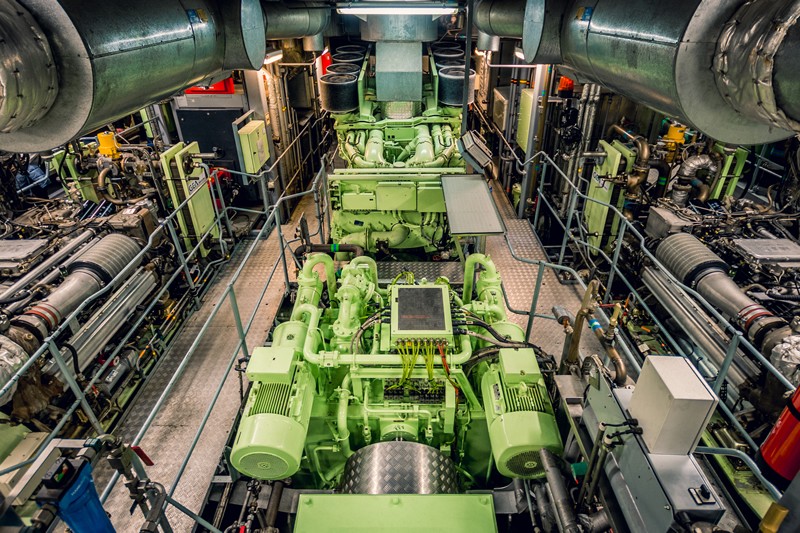Long Term Potential For Increased Shipping Efficiency Report Released
22
Maritime shipping is highly fuel-efficient, but its vast scale and rapid growth make it a major energy consumer and a significant source of carbon emissions. As the shipping industry and governments seek ways to reduce the sector's overall energy and carbon footprint, many questions remain unanswered. Key among these are the extent of variation in real-world fleet efficiency and the speed at which the industry can adopt best technical and operational practices to enhance efficiency.

Progress on climate action at the International Maritime Organisation (IMO), the body tasked with regulating the industry, has been painfully slow. Last year, governments agreed to increase ambition, setting a near-term 2030 target to cut emissions by at least 20% while “striving” for 30%. There are checkpoints along the way to a somewhat vague goal of achieving net zero emissions “by or around” 2050.
The International Council on Clean Transportation (ICCT) calculates that this timeline would allow shipping to remain within a carbon budget compatible with “well below” 2 degrees Celsius average warming, but not the more stringent 1.5-degree target set by the Paris Agreement.
This study offers a novel analysis connecting 2011 in-use fleet characteristics, global satellite data on ship movement, and literature on ship technology to assess the long-term prospects for increasing shipping efficiency. The satellite-based data provides deeper insights into real-world operational ship speed and its relation to efficiency than previous analyses. The study also examines how factors such as age, size, technology, and operational practices influence fleet efficiency and develops a ship stock turnover model to independently track technical and operational efficiency practices in ships.
The findings indicate that industry-leading ships are about twice as efficient as lagging ships across major types. For instance, the top 5% of container ships have a carbon dioxide (CO2) emission intensity 38% lower than the industry average. Similar efficiency variations are seen across other major ship types. This variation is partly due to the speed at which new technology enters the fleet, with newer, larger ships being more efficient and equipped with sophisticated engine controls that benefit more frequently from speed reduction.
The analysis suggests that by fully adopting the available technical and operational practices of today's low-carbon industry leaders, there is potential to reduce CO2 emissions in absolute terms, even as business-as-usual freight movement doubles. Embracing industry-leading efficiency practices could result in reductions from business-as-usual efficiency practices of 300 million metric tons of CO2 per year and 2 million barrels of oil per day by 2030.
This study has significant implications for the shipping industry, shippers, and ultimately consumers. The analytical approach used here suggests that shipping companies can use data and methods to compare their practices more precisely with those of their peers. Shippers could increasingly demand precise accounting of ships’ age, technical efficiency, and in-use shipping efficiency. Based on this assessment, there is potential to develop tools for shippers to quantify, evaluate, and compare their supply chain carbon footprints without relying on aggregated fleet-average simplifications.
The full study can be found on the ICCT website. The International Council on Clean Transportation is a multinational non-profit public policy think tank and research institute that provides technical, scientific, and policy analysis to environmental regulators on issues related to environmental, energy, and transportation policy.
#protea #emissions #monitoring #cems #ftir #gas #analysers #shipping #marine #carbon #capture
Other Articles
The EU Emissions Trading System ETS In A Nutshell
02
Rising Carbon Costs Drive The Need For Accurate Emissions Management In European Shipping
26
Carbon Capture Utilisation & Storage (CCUS) In 2026
16
Global Underground CO2 Storage Data Offers Hope Amid Rising Emissions
01
IMO Postpones Adoption Of Global Net-Zero Shipping Framework
04
Pioneering Carbon Capture Projects Ready For Construction
03
Methanol & Ammonia Deemed Ready As Zero-Emission Shipping Fuels
01
Carbon Capture Storage Reaching A Turning Point In Decarbonisation
13
CCS To Capture 15% Of Shipboard Carbon Emissions By 2050
29
Global Shipping Industry Struggles To Navigate Net Zero Transition
21